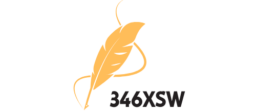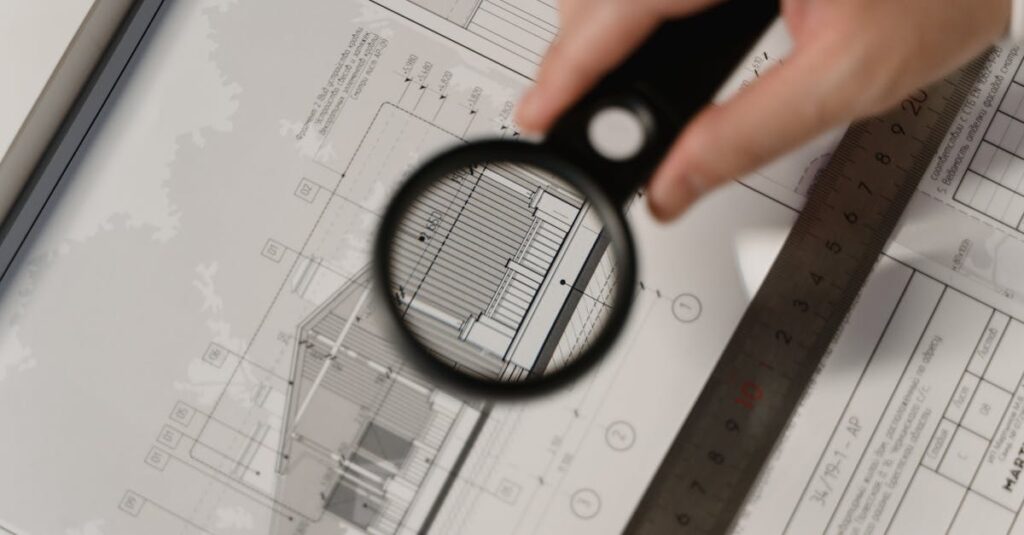As a technical writer with over a decade of experience, I’ve found that the right books can transform your writing skills from good to exceptional. Technical writing requires a unique blend of clarity, precision, and user-focused content – skills that don’t always come naturally.
I’ve spent years building my personal library of technical writing resources, and these books have been invaluable in helping me craft better documentation, user guides, and technical specifications. Whether you’re just starting your journey in technical writing or looking to refine your expertise, investing in quality learning materials is essential. After reviewing countless books on this subject, I’ve identified the most impactful ones that have shaped my career and continue to serve as go-to references.
Key Takeaways
- A high-quality technical writing book should have clear learning objectives, practical examples, structured methodology, and modern industry standards, with about 40% devoted to hands-on examples.
- Essential starter books include the Microsoft Manual of Style for fundamental guidelines and Technical Writing Process by Andrea Drugay for systematic documentation development.
- Advanced technical writers should focus on specialized style guides like Chicago Manual, IEEE Editorial Style Manual, and industry-specific resources for API documentation.
- Different technical writing domains (medical, scientific, software) require distinct resources and style guides – the AMA Manual for medical writing, CSE Manual for scientific writing, and Microsoft Style Guide for software documentation.
- Digital resources and online platforms like Udemy courses, Read the Docs, and Write the Docs community complement traditional technical writing books with interactive learning opportunities.
Technical Writing Books
A great technical writing book balances theoretical knowledge with practical applications through these essential qualities:
Clear Learning Objectives
Each chapter presents specific goals upfront with measurable outcomes. In my experience, the most effective books outline skills readers acquire after completing each section.
Practical Examples
Strong technical writing books include:
- Real-world documentation samples
- Before-and-after comparisons
- Step-by-step tutorials
- Case studies from various industries
- Code snippets with explanations
Structured Methodology
The content follows a logical progression:
- Foundational concepts
- Advanced techniques
- Industry best practices
- Common pitfalls to avoid
- Process frameworks
Modern Industry Standards
Top technical writing books incorporate:
- Current documentation tools
- API documentation methods
- DITA XML principles
- Agile documentation practices
- Single-sourcing techniques
Exercise-Based Learning
Quality books provide:
- End-of-chapter assignments
- Portfolio-building projects
- Self-assessment tools
- Peer review guidelines
- Documentation templates
Reference Materials
Essential supplementary content includes:
- Style guide examples
- Documentation checklists
- Term glossaries
- Tool comparison charts
- Resource directories
| Component | Percentage in Quality Books |
|---|---|
| Theory | 30% |
| Practical Examples | 40% |
| Exercises | 20% |
| Reference Materials | 10% |
I’ve found technical writing books meeting these criteria create a comprehensive learning experience that transforms theoretical knowledge into practical skills.
Essential Technical Writing Books for Beginners
After years of mentoring new technical writers, I’ve identified specific books that provide a solid foundation in technical communication. These resources combine practical guidance with industry-standard methodologies to accelerate the learning process.
The Microsoft Manual of Style
The Microsoft Manual of Style stands as the definitive guide for writing clear technical documentation. This comprehensive reference covers essential topics like terminology standardization, formatting conventions, and content accessibility guidelines. The manual includes specific examples of correct usage for technical terms, punctuation rules for technical content, and a detailed glossary of computing terms. The latest edition features updated sections on:
- Documentation patterns for cloud computing terminology
- Guidelines for writing UI elements descriptions
- Standards for inclusive language in technical content
- Rules for formatting code samples
- Conventions for describing user interactions
Technical Writing Process by Andrea Drugay
Andrea Drugay’s Technical Writing Process delivers a systematic approach to documentation development. The book breaks down complex projects into manageable phases:
- Information gathering techniques for technical documentation
- Document planning strategies with templates
- Writing methods for technical accuracy
- Review processes for quality assurance
- Publication guidelines for various formats
| Document Type | Template Features |
|---|---|
| API Guides | Request/response examples, endpoint documentation |
| User Manuals | Task-based procedures, troubleshooting sections |
| Release Notes | Feature descriptions, bug fix documentation |
| Process Docs | Workflow diagrams, step-by-step instructions |
Advanced Technical Writing Resources
I’ve compiled specialized resources for technical writers ready to expand their expertise beyond foundational concepts. These advanced materials focus on complex documentation challenges modern technical communicators face daily.
Style Guides and Reference Materials
My experience shows that three advanced style guides stand out for their comprehensive coverage of complex technical scenarios:
- The Chicago Manual of Style (17th Edition) contains detailed guidelines for documenting technical specifications plus specialized notation systems
- Read Me First! A Style Guide for the Computer Industry offers in-depth coverage of software documentation standards including UI terminology hierarchies
- IEEE Editorial Style Manual provides precise formatting rules for engineering documentation plus mathematical expressions
| Style Guide | Focus Area | Latest Edition |
|---|---|---|
| Chicago Manual | Technical Specifications | 17th (2017) |
| Read Me First | Software Industry | 4th (2018) |
| IEEE Manual | Engineering | 2021 |
- Docs for Developers by Jared Bhatti examines modern API documentation patterns through case studies from Google Cloud Platform
- The Design of Web APIs by Arnaud Lauret demonstrates REST API documentation strategies with practical OpenAPI examples
- Docs Like Code by Anne Gentle details treating documentation as code using GitHub workflows plus continuous integration methods
| Book | Key Topics | Publication |
|---|---|---|
| Docs for Developers | Cloud APIs | 2021 |
| Design of Web APIs | REST APIs | 2019 |
| Docs Like Code | DocOps | 2018 |
Books for Specialized Technical Writing
Technical writing varies significantly across industries, requiring focused resources for specific documentation needs. Here are specialized books tailored to distinct technical writing domains.
Medical and Scientific Writing
“”Scientific Writing and Communication”” by Angelika H. Hofmann provides comprehensive guidance for writing research papers, grant proposals and scientific manuscripts. I recommend “”AMA Manual of Style”” as the authoritative resource for medical documentation standards. “”Writing in the Sciences”” by Kristin Sainani covers specialized formatting, citation styles and data presentation techniques essential for scientific publications.
Common medical writing resources:
- “”Medical Writing: A Guide for Clinicians, Educators, and Researchers”” – Precise terminology guidelines
- “”Health Sciences Literature Review Made Easy”” – Systematic review methodologies
- “”Writing Science in Plain English”” – Clear scientific communication strategies
Software Documentation
Modern software documentation demands expertise in API references, code samples and developer guides. “”The Art of Software Documentation”” by Stephen Manes focuses on creating effective developer portals and API documentation. “”Documenting APIs: A Guide for Technical Writers”” by Tom Johnson covers REST API documentation best practices.
Key software documentation books:
- “”Every Page is Page One”” – Topic-based writing for technical content
- “”Modern Technical Writing”” – Git-based documentation workflows
- “”The Product is Docs”” – Software documentation planning methods
| Domain | Core Style Guide | Primary Focus |
|---|---|---|
| Medical | AMA Manual | Clinical accuracy |
| Scientific | CSE Manual | Research methodology |
| Software | Microsoft Style | Code documentation |
Digital Resources and Online Companions
I’ve identified several essential digital platforms that complement traditional technical writing books:
Online Learning Platforms
- Udemy Technical Writing Courses: “”Technical Writing: Master Your Writing Career”” provides 40+ hours of video content
- LinkedIn Learning: “”Technical Writing: Documentation on Software Projects”” offers structured modules with certification
- Google Technical Writing Course: Free comprehensive curriculum covering style guides documentation best practices
Interactive Documentation Tools
- Read the Docs: Open-source platform for creating searchable documentation
- GitBook: Modern platform for collaborative documentation with version control
- MkDocs: Static site generator optimized for technical documentation projects
Digital Style Guides
| Resource | Focus Area | Update Frequency |
|---|---|---|
| Microsoft Writing Style Guide | Digital content | Quarterly |
| Google Developer Documentation | API documentation | Monthly |
| Apple Style Guide | UI/UX writing | Bi-annual |
Community Resources
- Write the Docs Community: Active Slack channels podcasts knowledge bases
- API Documentation Groups: OpenAPI Initiative forums REST API documentation resources
- Technical Writing Forums: Reddit r/technicalwriting Stack Exchange technical communication boards
- Confluence University: Self-paced tutorials for enterprise documentation
- Madcap Flare Tutorials: Video series covering advanced single-sourcing techniques
- Swagger Documentation Tools: Interactive API documentation creation guides
- Real-time collaboration features
- Interactive exercises assessments
- Version-controlled documentation practice
- Immediate feedback mechanisms
- Updated industry standards references
Guide for Writers
My years of experience have shown me that investing in quality technical writing books is crucial for professional growth. I’ve seen firsthand how the right resources can transform an aspiring writer into a skilled documentation specialist.
These carefully selected books combined with digital resources create a powerful foundation for mastering technical writing. Whether you’re just starting or looking to advance your career I’m confident these recommendations will guide you toward excellence in technical documentation.
Remember that technical writing evolves continuously and staying current through both traditional books and modern digital platforms is key to success in this field.



